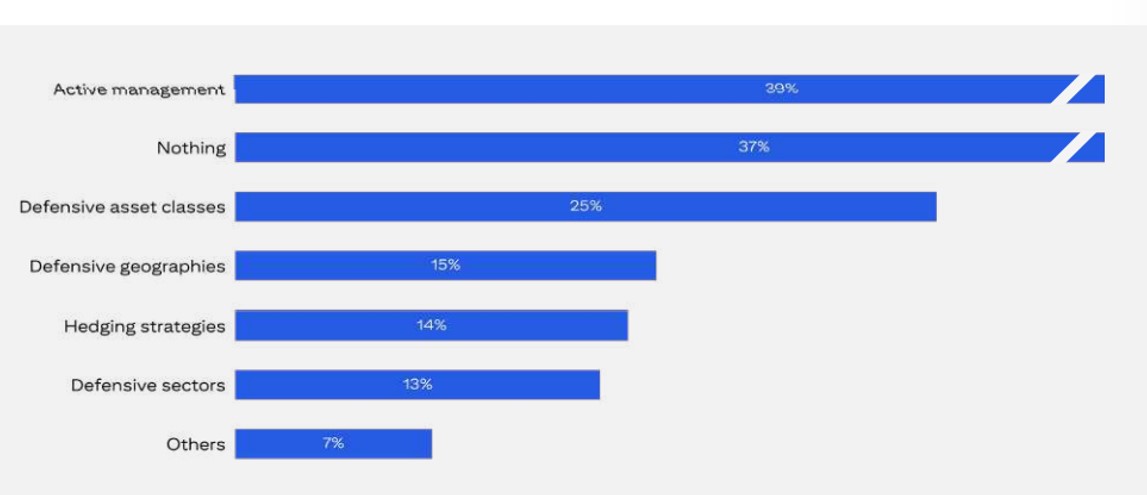Family Office
Family Offices Hold Fire On Asset Allocation In Volatile Times – Citigroup Study

Family offices around the world took a cautious view of their asset allocation and overall risk levels as worries about tariffs and geopolitics took hold earlier this year, a Citi Wealth study showed.
Global trade, which is being roiled by the Trump administration’s tariff policy, supplanted interest rates as the main concern of family offices, while these organisations broadly held fire on asset allocations and waited for more clarity on the financial outlook, a Citigroup survey found.
Family offices largely maintained their asset allocations, making fewer shifts than in 2024. Half of respondents kept their fixed income holdings steady, and two thirds did so in real estate. Private equity saw the most notable bullish movement, with those increasing allocations outnumbering those decreasing by 26 per cent.
The findings, in an 81-page report from the US bank, were drawn from Citi Wealth’s 10th annual Family Office Leadership Summit in June. The bank’s family offices group works with more than 1,800 FOs globally. Its survey drew 346 respondents and conducted in June and July.
Among the minority who altered their public equity and fixed income exposure, a net 11 per cent and 14 per cent made increases respectively, down from last year’s levels. Regionally, Asia Pacific made the greatest increases in public equity, with the Americas leading in private equity.
“Overall, though, ongoing trade and monetary policy uncertainty, geopolitical tensions and fiscal concerns may have kept many family offices in wait-and-see mode,” authors of the report said.
Family offices expressed optimism about 12-month portfolio returns. Possible drivers of this positive sentiment include potential US deregulation, interest rate cuts and advancements in artificial intelligence. A significant cohort (30 per cent) anticipated returns between 10 and 15 per cent, with an additional 8 per cent expecting returns exceeding 15 per cent.
There was not much agreement, however, on which asset classes would deliver the stronger performance, the report said.
To hedge or not to hedge – that is the
question
About two-thirds of FOs took steps to contain the
impact of market gyrations after President Trump announced he was
imposing sanctions on 2 April. Thirty-nine per cent of
respondents cited active management as their response to the
market fallout. They allocated more to asset classes and
geographies which they perceived as defensive (25 per cent and 15
per cent respectively). Some 14 per cent engaged in hedging
strategies, while 13 per cent sought out perceived defensive
sectors.

Source: Citi Wealth 2025 Global Family Office Report
Direct route to goal
Turning to a topic that has surfaced before in family office
conversations, 70 per cent of respondents in the Citi Wealth
report said they were engaged with direct investments. Of those,
four out of 10 said they had increased or significantly
increased their activity in the last year. The report said this
suggested family offices’ confidence in their ability to select
deals that drive returns.
War worries
Trade wars were this year’s top concern (60 per cent). In 2024,
by contrast, respondents were most preoccupied with the evolution
of interest rates, a worry that has since slipped to fourth place
(30 per cent) amid declining rates across many economies. Similar
to last year, US–China relations were the second most common
concern (43 per cent), followed by a return of inflation (37 per
cent).
The Middle East conflict and the Russia–Ukraine war were seen as substantially lesser risks (14 per cent and 9 per cent, respectively) than last year, possibly because investors have become used to these events, the bank said.
Mixed risk abilities
Family offices mentioned risks related to investing more than any
other kind (70 per cent). This corresponds to the
continuous interest in risk analyses and hedging strategies
that we are seeing, particularly since April’s selloff, the
report said.
The next most mentioned risks were those linked to family office operations (37 per cent) and the family (33 per cent). Liquidity and geopolitical issues were not far behind. More than four fifths (83 per cent) of respondents said their investment risks were well managed or very well managed, albeit slightly down from last year’s 87 per cent. But they felt less assured when it came to their management of cybersecurity (48 per cent) and geopolitical (55 per cent) risks.
Perhaps unsurprisingly, AI made an appearance in this year’s study. The proportion of respondents saying they have deployed AI nearly doubled from the level in 2024, particularly for automating manual tasks (22 per cent) and investment analysis or forecasting (22 per cent). However, this transformational technology has yet to be integrated across all functions, especially those involving risk and compliance, the report said.
A lack of awareness and expertise are holding family offices back from using AI, the report added.